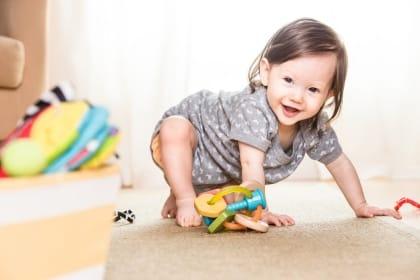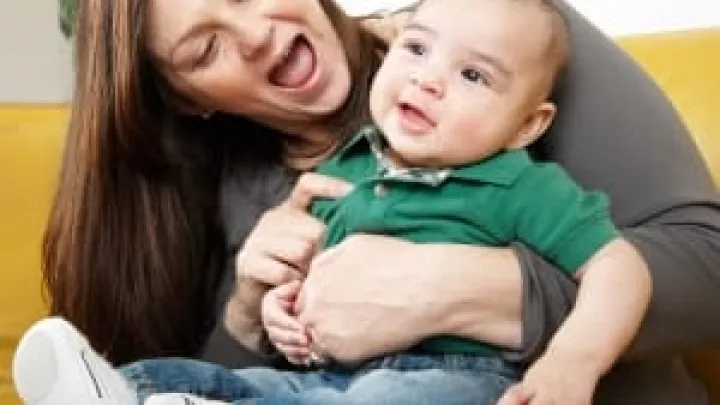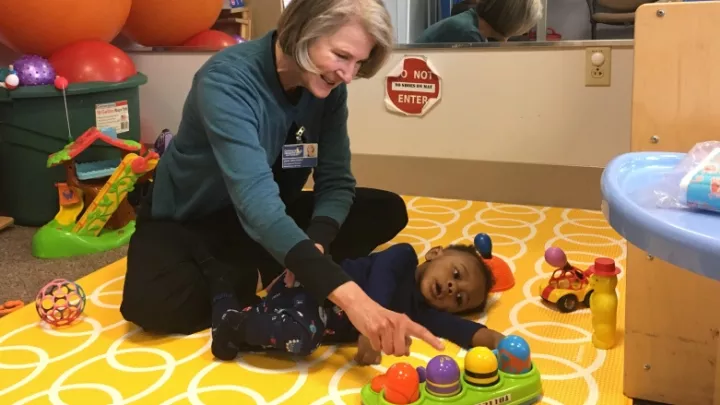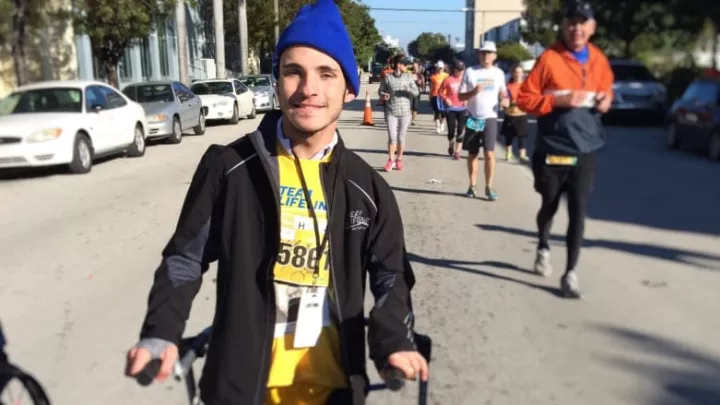Learning to Move: Motor Milestones During the First Year
Your baby will change a lot over the course of a year, developing motor, speech and social skills. Here are some of the major gross motor developmental milestones that you can expect throughout your child’s first year of life. Please note that these are meant to be guidelines for typical gross motor development and remember that every baby will develop skills on his or her own timeline. If you have any questions regarding your child’s development, always consult your pediatrician.
0-3 MONTHS: The first three months of life are sometimes referred to as the “fourth trimester.” Your baby is just getting used to a new environment, but starts learning immediately. Look out for these beginner skills:
- Your baby will turn his head side to side while lying on his back.
- He will also start moving his arms and legs and may even bring his hands to his mouth to suck.
- When on his tummy, your baby should turn his head side to side and start to hold his head up. Remember, babies should only spend time on their stomach while supervised by an adult.

4-6 MONTHS: You will notice that your baby will begin to explore her body during these next three months. She will also develop the strength to begin moving on her own. You should expect to see the following:
- While lying on her back, your baby should start bringing her hands together, reaching for her knees and reaching for her feet. She may even start putting her toes in her mouth!
- Your baby will start rolling, first to her side, and as she gets stronger, to her tummy. By 6 months your baby should be rolling from back to belly and belly to back all by herself.
- While on her tummy, your baby will begin pushing up on her forearms, and as she gets stronger, on her hands. She will also start reaching for toys in this position. Remember, babies should only spend time on their stomach when supervised by an adult.
- Your baby will begin sitting with support from you. As she gets stronger she should be able to sit by supporting herself with her hands on the floor in front of her.
- Your baby should be able to support her weight while standing as you hold her hands or around her belly.
7-9 MONTHS: During these months your baby will become very curious. You will see that he becomes much more active as he begins to explore his environment on his own. Here are some new skills you will see.
- Your baby will prep for crawling by pushing himself onto his hands and knees. He will then rock forward and backward in this position, and may even start crawling backward before forward!
- Closer to 7-8 months, he may begin “combat crawling” by pulling himself forward on his belly with his arms so that he can explore his environment. By 9 months your baby should be crawling on hands and knees.
- Your baby should be able to get in and out of a sitting position all by himself.
- Your baby will start by pulling himself up onto furniture with his arms. At first he may only be able to pull himself to his knees, but by 9 months he should be able to pull himself to standing and keep his balance while holding on to the furniture with both hands.
10-12 MONTHS: Your baby is now on the move! Make sure that your home is safe and baby-proofed, as she will be exploring her environment with her ever-growing curiosity and energy.
- Your baby should be crawling everywhere and be able to crawl over obstacles easily.
- Your baby will perfect her ability to transition to standing by pulling up through a half-kneeling position with hands supported on the furniture. Closer to 1 year old, your baby may even begin to transition to standing in the middle of the room by pushing her hands on the floor to a squat and moving to stand.
- When standing with arms supported, your baby will begin sidestepping along furniture such as the couch or coffee table. As she gains balance and confidence, she will begin to be able to cross small gaps in the furniture.
- Your baby will be able to squat down to pick up a toy from the floor and return to standing with just one hand supported on the furniture.
- Your baby will enjoy walking while holding your hands. As she continues to perfect this skill, she will be able to walk with the support of just one of your hands, and then eventually, usually closer to her first birthday, begin taking steps all by herself.
These are meant to be guidelines for typical gross motor development, but remember that every baby will develop skills on his or her own timeline. If you have any questions regarding your child’s development, always consult your pediatrician.


